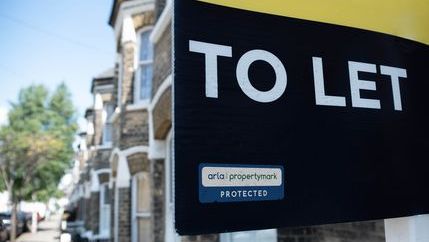
Propertymark provided written evidence to the inquiry in May and November last year. In our responses we raised concerns about the number of tenants in rent arrears, landlords being impacted financially, difficulty for the sector to comply with new and existing legislation including an inability for agents and landlords to fully comply with local authority licensing schemes, and new legislation providing continued protection for those in extreme rent arrears and refusing to pay rent.
Key recommendations for the UK Government
There are two key recommendations for the private rented sector that the Report highlights. Firstly, the Committee calls on the UK Government to publish an exit plan for the private rented sector from national and local restrictions. Secondly, a specific financial package is needed to support tenants to repay rent arrears caused by COVID-19. To this end, the UK Government should consult the Local Government Association and appropriate bodies representing renters and landlords.
Rent arrears crisis
Importantly, the Committee acknowledged that the problem of growing rent arrears not only puts some renters at risk of eviction and homelessness; it also affects landlords’ incomes. However, the Committee is concerned by the lack of robust data available to the UK Government on the value of rent arrears and how it equates to months of arrears, and by the impact this lack of data may have on policymaking.
Deliver a specific financial support package
The group of MPs also calls on the UK Government to deliver a specific financial package to support tenants to repay rent arrears caused by COVID-19 and this should be one of the Ministry’s top priorities. The Committee favour modified discretionary housing payments because helping tenants pay their rent arrears, including consideration of paying direct to landlords, is the simplest and most straightforward way to avoid evictions and help landlords receive income.
Local Housing Allowance
Following requests from the sector, the Committee also believes that the UK Government should review its decision to freeze Local Housing Allowance rates by maintaining the 30th percentile in cash terms only, and instead keep rates indexed at the 30th percentile long-term. Furthermore, MPs on the Committee have asked the UK Government to conduct work on what the impact on renters and the wider rental market would be of raising Local Housing Allowance rates further.
Discretionary Housing Payment
Additionally, the Committee call on the UK Government to temporarily boost funding to discretionary housing payments to meet the needs of the tens of thousands of households who are receiving no extra income from welfare increases due to the benefit cap. This will further protect households from falling into rent arrears because of the pandemic.
1985 and 1988 Housing Acts
The Committee believes that unless the UK Government amends existing housing legislation, its plans to introduce a pre-action protocol to the private rented sector will be toothless and will fail to prevent a cliff edge of evictions once the moratorium on possession cases ends. To this end, they recommend that legislation is brought forward to amend the 1985 and 1988 Housing Acts to allow judges to use discretion where a tenant is in rent arrears due to the coronavirus crisis for the next 12 months at a minimum. The MPs believe discretion could include consideration of whether a pre-action protocol has been complied with.
Renters' Reform Bill
As has been done with other key legislation recently, the Committee has reiterated its offer to conduct pre-legislative scrutiny of the Renters’ Reform Bill, should the UK Government choose to publish the Bill in draft. Despite the pandemic, the Committee believes that the UK Government must introduce the Renters’ Reform Bill urgently mirroring the approach the UK Government has taken with NHS reforms. The report says, “The Health Secretary told the House that the pandemic made the reforms “more not less urgent”. The same logic applies to the Renters’ Reform Bill and the urgent need to remove section 21 ‘no fault’ evictions. If the Government does not abolish section 21 before we come out of the pandemic, there will be serious consequences for renters.”
The Committee is made up of 11 MPs who are appointed to examine the expenditure, administration, and policy of the Ministry of Housing, Communities and Local Government.
Local Housing Allowance
Following requests from the sector, the Committee also believes that the UK Government should review its decision to freeze Local Housing Allowance rates by maintaining the 30th percentile in cash terms only, and instead keep rates indexed at the 30th percentile long-term. Furthermore, MPs on the Committee have asked the UK Government to conduct work on what the impact on renters and the wider rental market would be of raising Local Housing Allowance rates further.





